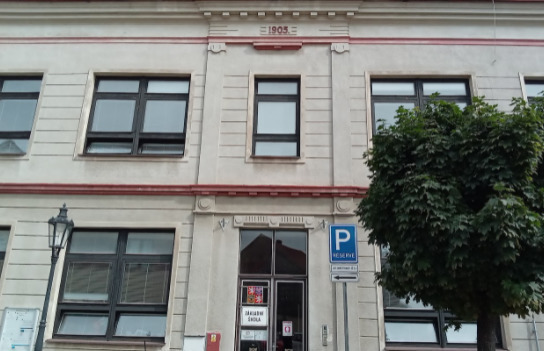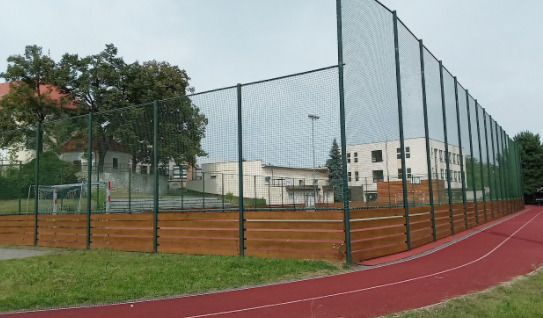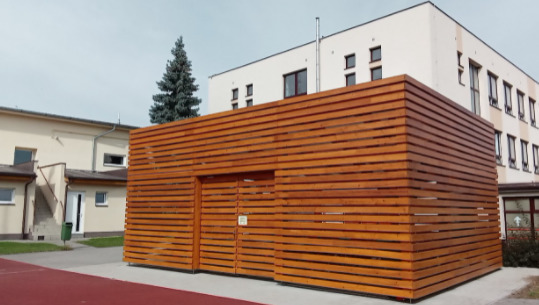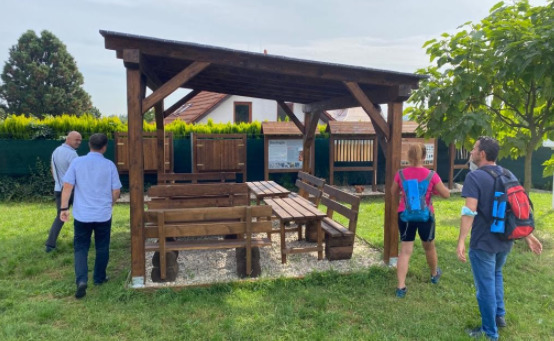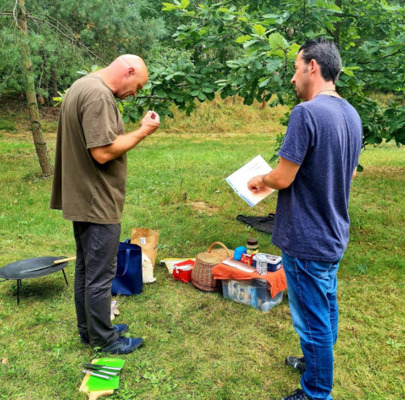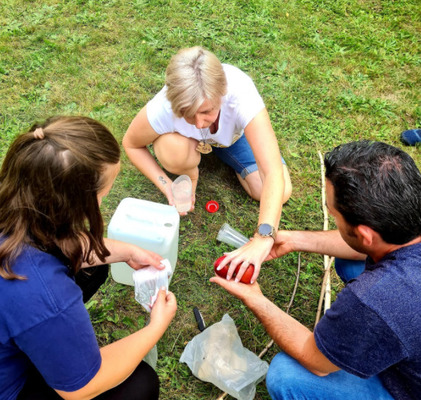We started the day reflecting on a phrase of Aristotle: "in all things of nature, there are wonders". Then we talked about "waiting activities", simple tasks that students can be given to do and that add fun to the reinforcement of one or more skills.
This was followed by a visit to Základní Skola, the school of Tynec nad Labem (https://www.zstynecnl.cz/), a small town with 2000 inhabitants. It was a very positive experience, sharing a lot of information. We were very well received by the Director of the school. The photos "talk" about the school and the bet it has made to reinforce outdoor education. Only a few informations remain. The school has 500 students, 40 teachers and 16 Special Education assistants for 20 students with special educational needs. There is a national curriculum, but each school has the autonomy to choose some subjects. Here, he bet on cooking and sewing. Entrance time is 7.30 am (6.30 am for some extracurricular activities for students who need them because their parents leave home early to go to work). Classes end at 3.45 pm, followed by extracurricular activities for students. The school has multiple spaces for outdoor learning, such as herbarium, weather station, environmental information boards, outdoor classroom... The Director is free to choose all the teachers in the school, there is no national competition for teachers, hence that all teachers are from here and not have to travel long distances to go to work. We reflected a lot on our education systems and came to the conclusion that between Portugal and the Czech Republic there are more points that unite us than those that separate us. There are two big differences: the way in which teachers are selected and the belief that in the center of Europe, as in the Nordic countries, teaching takes place outdoors. Another difference: there are no student retentions here!
In the afternoon, we went back to nature and carried out various activities that can be carried out in multiple disciplines. For Outdoor Education to be effective, attention must be paid to four lines of action:
- the space - any content can be worked outdoors: in a garden, in the school playground, in the city...
- the content - the activities should be based on real life and everyday experiences;
- the methodology - all students must be involved in the activity, and the teacher must motivate them for cooperation among them;
- reflection - it is essential to experience, but also reflect and review the activity, if necessary.

